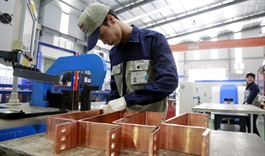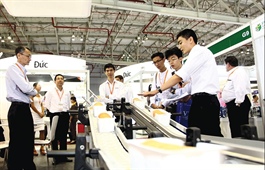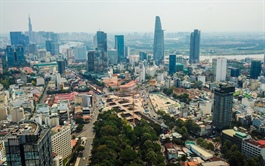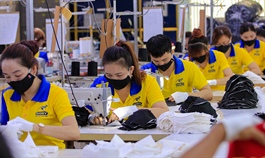Qualcomm contributing to domestic IP awareness
Qualcomm contributing to domestic IP awareness
As Vietnam accelerates its digital transformation, the importance of intellectual property (IP) to tech firms and startups has once again been put in the spotlight.
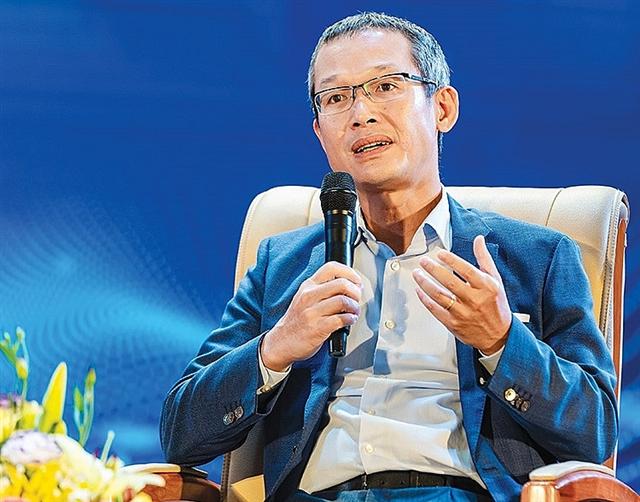
Qualcomm’s Thieu Phuong Nam explains why IPs are crucial for startups
|
Nothing underlines this better than the amendments to the Law on Intellectual Property, which are set to be presented at the National Assembly’s October session, and which are expected to be approved by May 2022. The proposed changes focus on strengthening the protection of patents, trademarks, and geographical indications in order to encourage innovation among Vietnamese firms.
While the main aim of these amendments is to ensure that Vietnamese laws and regulations comply with the free trade agreements which the country has signed, these will also play a key role in developing Vietnam into a regional centre for innovation.
For one, these will support the aspirations and ambitious goals set by the government’s “Make in Vietnam” programme, which seeks the establishment of 100,000 tech firms in the country by the end of the decade.
Given how central IP will be realising Vietnam’s ambitious innovation goals, numerous stakeholders have intensified commitments to raising awareness about, and protecting, IP. Such rights are deemed key to startups as they are considered an intangible asset. Specifically, an IP can provide a company or startup its unique selling proposition; help them maintain a competitive advantage to sustainably differentiate itself from competitors; and enable it to own exclusive rights to a number of technologies.
“Given the advantages they bring, startups which own IPs are considered more attractive by some investors. They also help increase a startup’s ability to earn sizable revenues once they are able to scale up operations,” said Thieu Phuong Nam, general director of Qualcomm for Vietnam, Laos, and Cambodia.
According to Nam, the protection of IP can also contribute to Vietnam’s overall economic and national development, especially in the age of 5G and Industry 4.0.
IHS Markit forecasts that potential global sales activity across multiple sectors enabled by 5G could reach over $13 trillion in 15 years – representing approximately 5.1 per cent of all global real output in 2035. As such, protecting their respective IPs can help Vietnamese enterprises participate in, and benefit from, this increase in economic activity.
Since Vietnam passed the Law on Intellectual Property in 2005, domestic businesses’ awareness of the importance of IP has improved. However, the number of applications for patents and useful solutions remains low. Many business leaders still have poor knowledge about intellectual property, while the legal system to enforce related laws remains inefficient, according to the National Office of Intellectual Property of Vietnam.
August 2019 marked a new development step in the protection of IP rights when the prime minister issued the National Intellectual Property Strategy until 2030. This directive is an important tool not only to promote innovation but also to improve national competitiveness and contribute to the economic, cultural and social development of the country. In line with this, in December 2019 Qualcomm launched the Qualcomm Vietnam Innovation Challenge (QVIC) to support innovative Vietnamese startups in promising new technology areas – and to help them protect their inventions with patents. This initiative, which has the support of the Ministry of Science and Technology, aims to help develop Vietnam’s rising technology ecosystem by identifying and nurturing innovative small- and medium-sized companies that are designing products in 5G, Internet of Things, AI, smart cities, wearable devices, and Qualcomm’s multimedia mobile platforms and technologies.
To help ensure the future success of the startups that get accepted into the programme, Qualcomm has embedded IP at the heart of QVIC.
Firstly, it provided the 10 finalist startups with financial incentives of up to $5,000 per startup for the filing of patents. These incentives were put in place to encourage the startups to register their respective IPs. Qualcomm has also tapped law firm Baker McKenzie Vietnam to provide finalists with IP protection training as an integral part of the programme.
Qualcomm has also engaged Baker McKenzie Vietnam to provide consultancy and/or filing services to the startups when they submit their respective patents.
“With these initiatives, we are equipping QVIC finalists with the means to protect their respective IPs, which can help them further develop their businesses,” explained Dr. An Mei Chen, vice president of Engineering at Qualcomm. “This also underlines the importance we put on IPs. Given that it takes creativity and hard work to develop tech products and services, protecting IPs is key to fuelling further cycles of research and development and invention.”
With its efforts, Qualcomm hopes to enable not only the future success of the QVIC participants by encouraging them to register, and therefore, protect their IPs, but also to spread the word about the importance of IP to the larger startup community in Vietnam.







